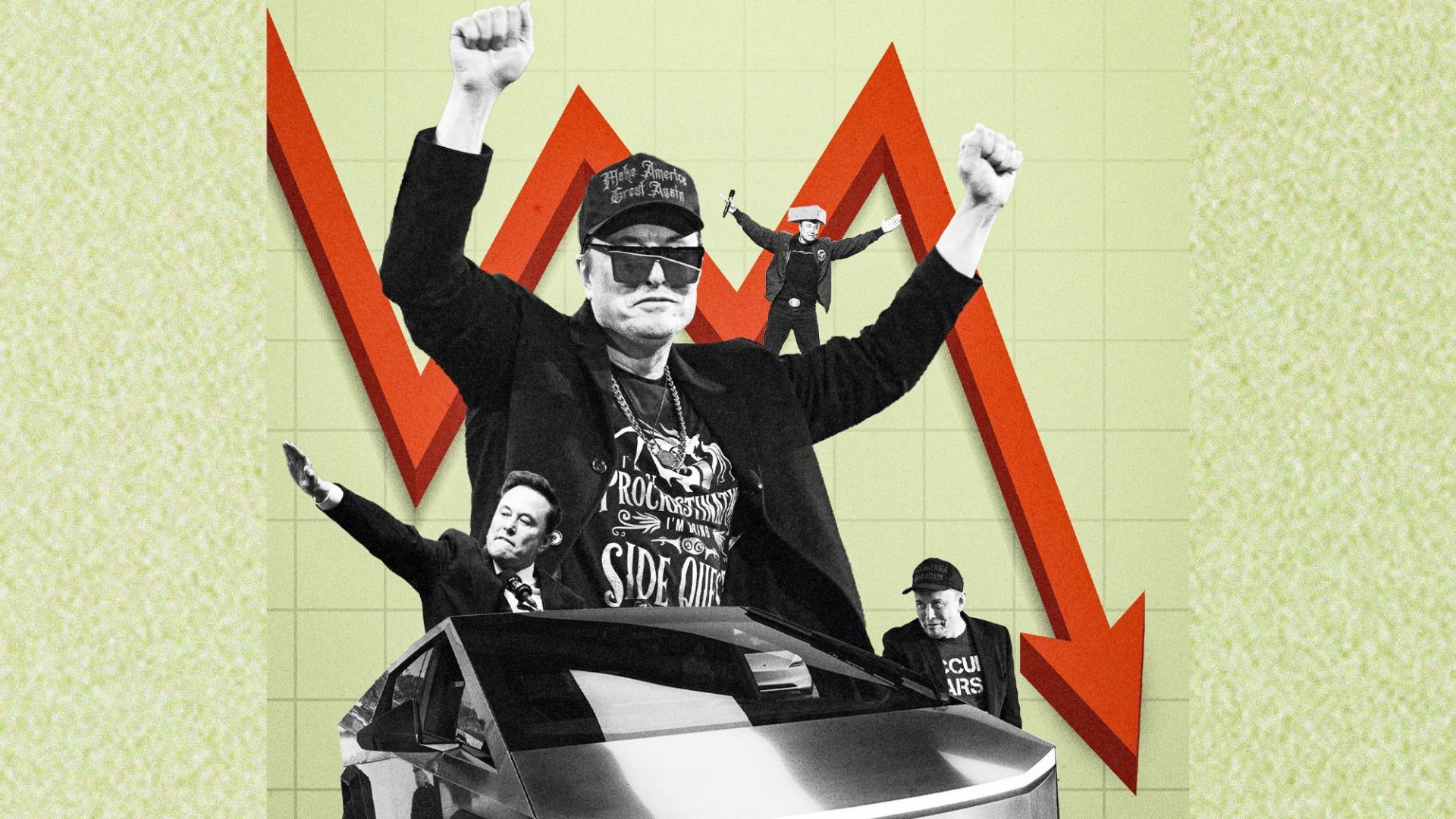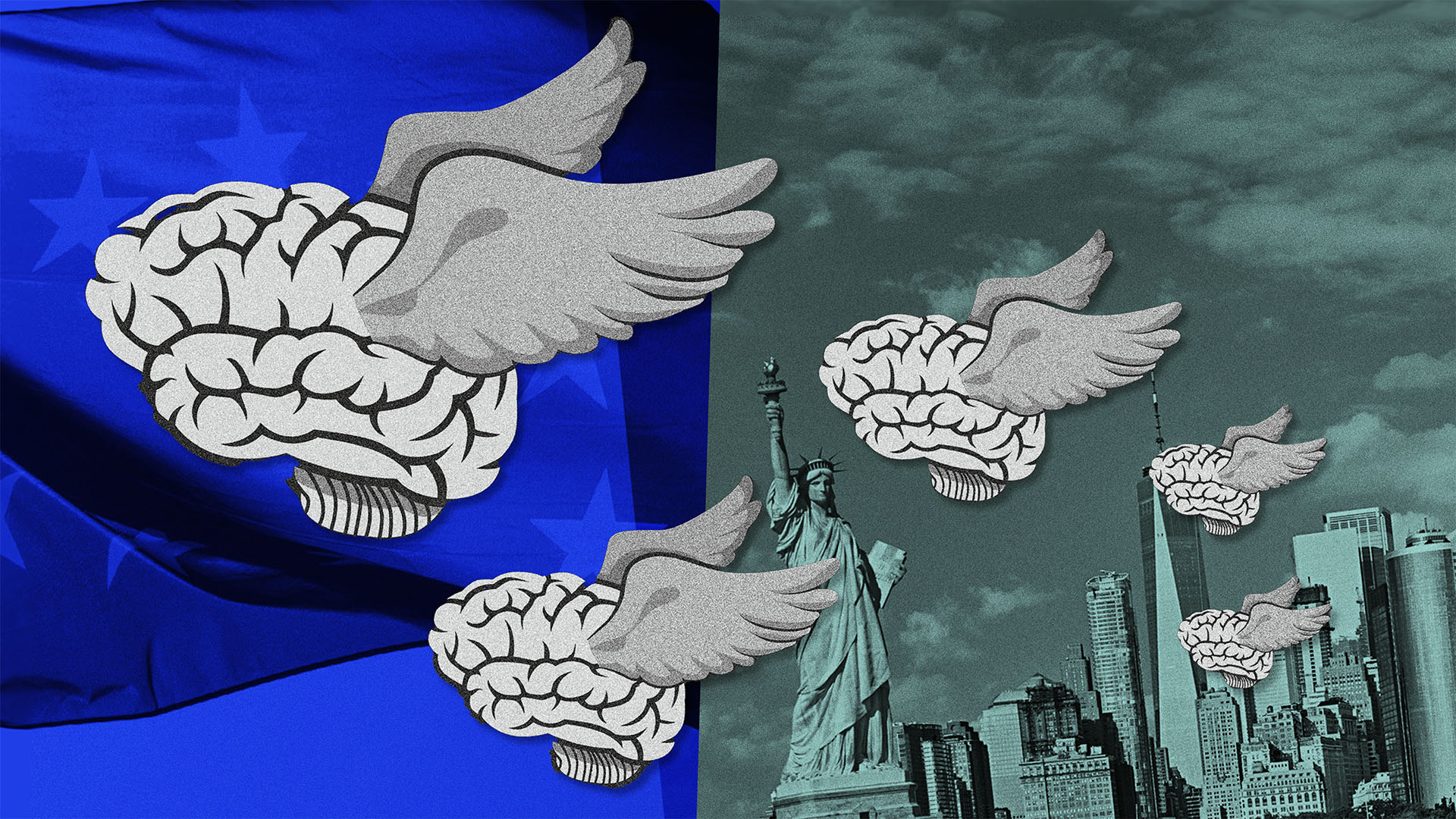Elon Musk is struggling to catch a break. He arrived into the federal government with great fanfare a few months ago, only for his Department of Government Efficiency (DOGE) to start petering out almost immediately, though not without doing huge damage to the US infrastructure. Donald Trump has now confirmed that Musk will be leaving government “soon”.
Even as sales of electric cars increase, demand for Teslas is slumping across the world, fuelled by large-scale protests outside his dealerships. Musk’s personal net worth has crashed by hundreds of billions of dollars thanks to a combination of Trump’s tariffs, the Tesla backlash and his own absentee management of his other companies.
And even as a political donor and backer – the largest in America – Musk is faltering. He turned a crucial contest for control of Wisconsin’s Supreme Court into the highest-spending such race in US political history, made himself the main character in that contest and was humiliated.
He spent tens of millions, gave away millions more in “contests” to supporters, and even engaged in the demeaning Wisconsinite political ritual of turning up in a “cheesehead” hat (the state produces a lot of America’s dairy products) – and despite all that, the candidate he backed still lost. Heavily.
Whatever Elon Musk is selling, America just isn’t buying. And neither is the world. Musk’s personal ratings are such a drag on Trump and the Republicans that they may even outweigh the benefits that his money brings. Musk’s polling in Europe is even worse. If anything unites people in these polarised times, it’s that they do not like Elon Musk. Why do people dislike him so much?
One genuine problem for Musk is that most people started out with a pretty high opinion of him. The Marvel movie franchise made their version of Tony Stark (or Iron Man, if you prefer) distinctly Musk-like, and confirmed that the character had been somewhat based on him.
Musk appeared to the public like just the sort of billionaire everyone wanted – one who was trying to save the world. He’d invented Tesla, popularising electric cars, and was working to make a cheaper model for the masses. He wanted to take humanity into space. Once upon a time it took Nasa to build rocket ships – now Elon would build them on his own, as an expression of his great genius.
His actual role creating these products, rather than just financing them, might be more complex, but almost no one knew this. To most people Elon Musk looked like a genius who had propelled himself into the ranks of the ultra-rich with technology straight out of sci-fi, making big promises to match. He claimed that humanity would be on Mars within a decade, and there’d be fully self-driving cars. People tend to love an optimist.
But while Tony Stark can be superhuman, he has the advantage of being a fictional character. Elon Musk doesn’t enjoy such luxuries – he’s just a human, like the rest of us. Our minds want the ultra-rich to be something different, and special, partly because if they’re just as normal and flawed as the rest of us, then their wealth and power feels incomprehensible and somehow more threatening.
Musk would have sparked some form of backlash as he got ever more public attention just by virtue of losing the mystique that tends to surround billionaires, who typically shun the spotlight. But his particular foibles, especially his persistent and desperate need for attention, are repellent to most people.
If there is one incident that marked the change in Musk’s image, it is surely what’s come to be known as “pedogate”, a bizarre scandal stemming from the global 2018 news story about a group of boys trapped in a cave in Thailand.
As genuine specialists from around the world battled to save the children’s lives and free them from an incredibly complex cave system, Musk – unasked and without consulting with the actual specialists – “invented” a mini-submarine he claimed would save the day.
His idea was worse than useless, and distracted from the real rescue efforts, while promoting Musk himself. When one of the exasperated experts eventually criticised Musk, the billionaire baselessly accused him of being a paedophile – and instead of backing down, stuck to his line and eventually even fought a court case over it.
Compared with things Musk has done since, the incident looks almost mild, but it was a revelatory one. For many people who don’t follow the worlds of technology, space, or cars, it cemented a picture of Musk in their minds – and it was not a flattering one.
But it also speaks to Musk’s wider character, and three impulses within him that are constantly warring with one another. Elon Musk wants to be noticed, he wants to be loved, and he wants to attack anyone who doesn’t love him.
Musk has been giving interviews on Fox News and other pro-Trump outlets in recent weeks where his genuine hurt is apparent, as he asks how it could be that people loathe him, when he has (he said) never hurt anyone, and has just tried to help America and the world.
For a man who taunted half of his nation with a so-called “Roman salute” at Trump’s inauguration, union-busted in his own factories, allegedly took major risks with safety at Tesla over self-driving and whose reckless and unlawful cuts to foreign aid have already directly led to deaths, the “poor me” act itself inspires hatred.
Other aspects of Musk’s personality are outright creepy: his decision to sex-select the embryos for the many children he has had through IVF, or his willingness to adopt far right nativist causes as an immigrant himself, are just two of a long list of such traits.
A need to be loved that is so obvious, though, amplifies that dissonance. Musk was clearly overexcited at the Trump inauguration rally that prompted his salute. It looked less like a calculated decision than a man swept away by the moment, with no impulse control.
He similarly seems to need gamers to love him, faking his performance in ways easy for veteran gamers to spot, in the kind of scam most people grow out of in their teenage years. Musk wants to be where the action is, wants to be involved, and wants to be loved.
The combination of neediness and petulance that so often drives Musk’s actions give him an almost constant air of desperation, and the problem with desperation is that it almost inevitably invokes pity in those looking on. Few people want to be pitied, but more significantly, almost no one wants to pity someone as rich, powerful and publicly unpleasant as Musk is.
Elon Musk has won in every possible way a man could win, and yet still comes across as desperately unhappy. The immediate response is pity, but because he’s not a sympathetic character, it slides almost immediately into something visceral, a genuine loathing. People who hate Elon Musk don’t do so in a way that’s about simple politics or policy – he invokes something in their gut.
At his core, Elon Musk fundamentally just doesn’t really understand other people, or what makes them tick. He has the ability of some clever men to miss quite obvious points in spectacular ways. If someone Musk admired, or who Musk wanted to like him, tried to show him the movie Citizen Kane to make a point, Musk would doubtless watch it, and then turn up on stage the next day wearing a sled outfit marked with “Rosebud”, and make a lame joke on X about it.
It is almost like Musk is the victim of some form of ancient curse. He wants to be the main character, dominating the discourse, everywhere in coverage, and at the front of all of our minds – but what most of us want more than anything else is his absence, for him simply not to be taking up time or space in our heads.
Most people dislike billionaires, but in a vague and abstracted way. Generally, amassing huge wealth and power is largely shrugged off if people are discreet about it. If Musk rarely appeared in public, didn’t post on social media, and just worked away at his ultra-high-tech companies, he would still probably be widely liked and perceived as a genius who might save the world.
Instead, he needs to be noticed and he needs to be seen. And he’s managed that. He is seen and he is perceived. It’s just that the longer he’s looked at, the less there is to like.




